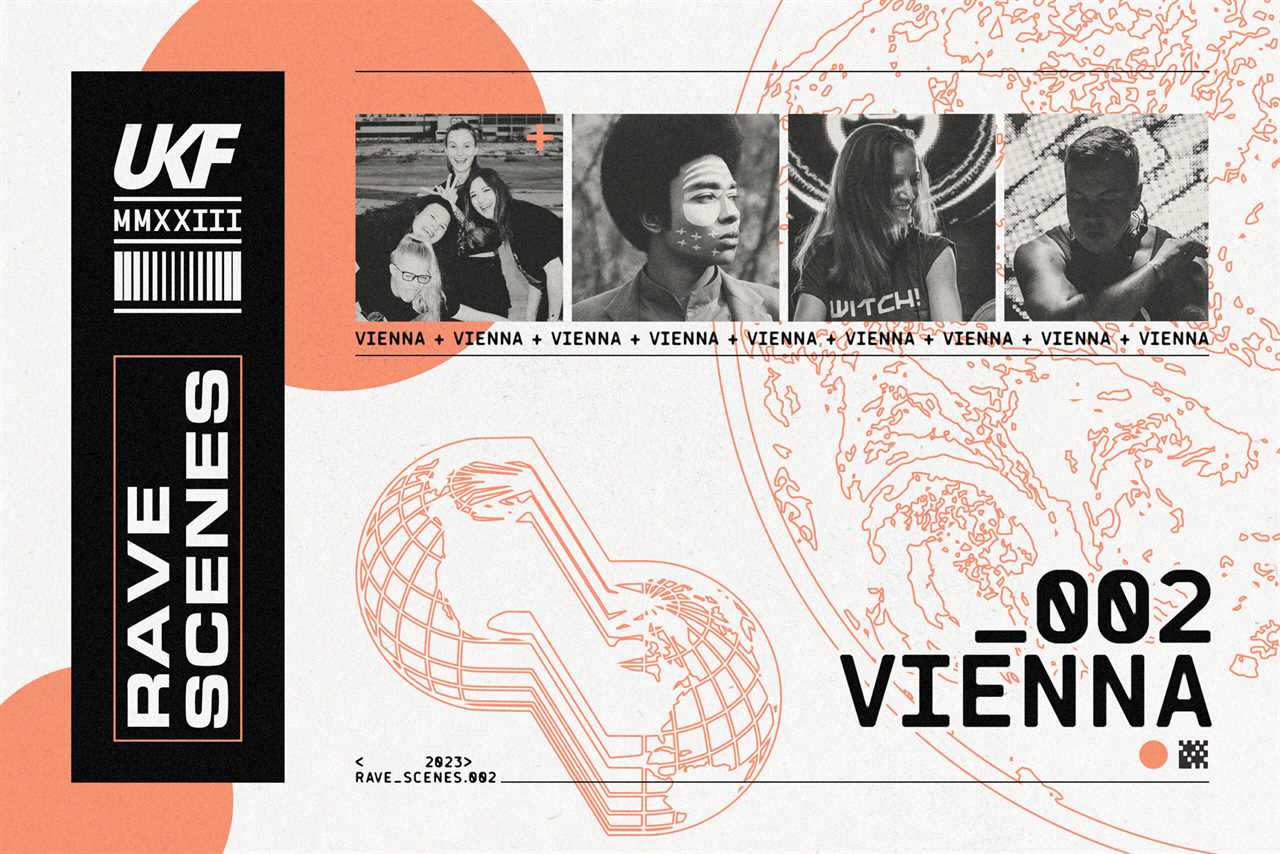
It is shortly after midnight on the last weekend in November. In the Gasometer, one of the largest event halls in Vienna, laser beams whirl over the heads of 3,500 people. The temperature inside oscillates between the last vacation in Bali and the next dream about it. While the sound cuts out for a second and hundreds of smartphone screens rise glowingly into the air, two men yell into their microphones, “Say yeah, say yeahhh!” The audience screams out. The bass kicks in. Three Saints appear.
Camo & Krooked and Mefjus, the poster boys of the Austrian drum & bass scene, celebrate their new label Modus with a kick-off event. The Gasometer, a former gas tank that has been used as an event location for many years, is sold out. On other nights, international artists like $UICIDEBOY$, Little Simz and Jack White perform on stage. Tonight, everyone is here for their local heroes. For three hours, Mefjus and Camo & Krooked pass the headphones to each other. The trio dashes over breaks, drops and hands-up moments at the speed of musical ADHD. Behind the DJ booth, they bounce around as if their blood had been exchanged for Red Bull.
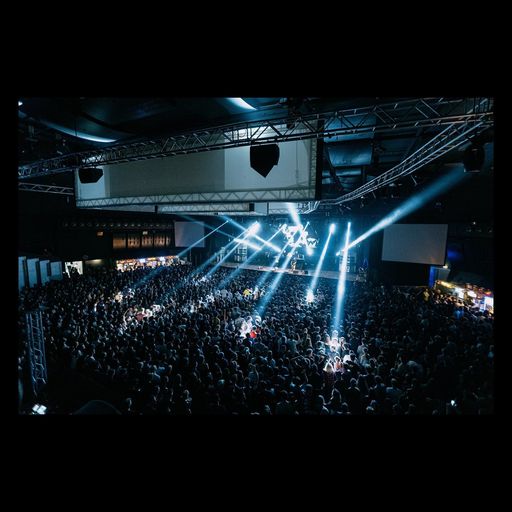
Photo: Modus Labelnight © Modus
When the subwoofers gasp for air, you realise why Vienna is one of the most important European cities for drum & bass. The audience in Gasometer not only celebrates this TikTok feed turned into music, it worships it. Thousands escalate simultaneously to beats that rush over wobbling basses at 170 beats per minute. During breaks, the crowd craves the drop. It is the moment of the MCs. They spread their arms on stage like statues of Christ, then blare into the mic, “Wait for it!” The hi-hats rattle faster and faster, a melody builds – “There it coooooomeeeees.” The bass presses into the stomach. The Gasometer turns into a madhouse.
“We give everything for the sound,” shouts a young man next to me at the bar. His hair is blond, he’s maybe 18, and he orders two energy drinks while swiping through his Instagram, checking Tinder, and typing two messages on Whatsapp. I look at the waitress and ask how many beers she’s sold already. “Too little,” she says, shrugging her shoulders. Only then I notice: few people here are younger than 20, on the contrary: when Camo & Krooked released their first record more than ten years ago, some people must still have been stacking toy blocks in kindergarten. The fact that everyone is celebrating today as if the last hour is approaching may also have something to do with the fact that some are doing it for the first time.
Corona has cost the drum & bass crowd two years of their youth. A lot of time when the scene is constantly changing, as Markus Wagner of Camo & Krooked says. “The audience is young, often between 16 and 20, but drum & bass is music for a walking audience.” Wagner knows what he’s talking about. With Reinhard Rietsch, his fellow producer, he has played clubs and festivals around the world. On Facebook, more than 300,000 people follow the duo; on Spotify, three-quarters of a million listen to their music regularly. Some have grown older with Camo & Krooked, most could be their children.
Maybe that’s why no one is tired in the Gasometer even after three hours of escalation discharge. When the Modus makers turn off and Youphoria plugs in her USB stick for the closing set, the crowd goes mental. “That was one of the best memories I’ve had in Vienna,” says Sema, who only reveals her first name. The 23-year-old DJ and media technician got into drum & bass at 15, when a friend showed her “Dustup” by Noisia & The Upbeats. She was hooked with the speed. Soon Sema adopted the DJ name Youphoria. In the meantime, she is already a resident at Flex and often plays internationally.
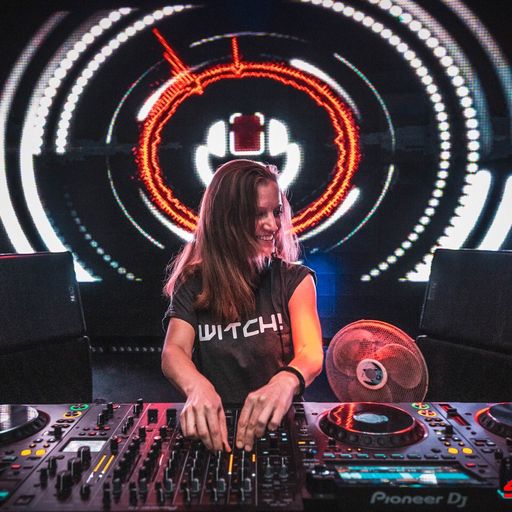
PHOTO: Youphoria (c) Tim König
However, only the drum & bass scene in Vienna feels like home, says Sema. Here, she is always approached by people in the crowd. That doesn’t happen yet at her gigs abroad, says the DJ, who will soon be scrolling through her rekordbox in Germany, Slovakia and the Czech Republic. Sema combines different directions of drum & bass in her sets. It’s evident her style goes down well by the fact that most people at Gasometer stay even though the headliners have long since disappeared backstage. When the lights come up shortly after four and the speakers fall silent, Youphoria smiles from the stage. She knows that she has won a few fans again.
Last Dance and Local Heroes
From the closing time in the Gasometer we change to the Pratersauna: At the end of January the last Mainframe party took place in the location near the popular Viennese amusement park. After more than 20 years of drum & bass in Vienna, the event is to be discontinued in the future. Disaszt, who founded Mainframe in 2002 and is himself active as a DJ and producer, raised several generations to become d&b heads with the event series. At times, thousands of people came to the monthly parties in locations like the Arena. On this Saturday evening, at least, hundreds lined up outside the Pratersauna — “The Last Dance” is sold out.
A few days after the event, I write to Disaszt- known to his mother as Daniel Fürst Zoffel. I want to talk to him about the end of Mainframe. After 20 seconds my smartphone vibrates: “I have a location inspection tomorrow. Come with me and we can talk.” I’m surprised. It doesn’t sound like “last dance” at all. Maybe that’s why Daniel remains cryptic when I ask him where I should meet him: “We have to go to Mordor, across the Danube river!“
Daniel doesn’t want to reveal more at this point, but others tell more. “He and his ego have shaped the Viennese drum & bass scene” in Vienna says Katja Dürrer aka DJ Pandora. “He set the level. All promoters have taken their cue from that. That’s why I’m happy if he continues.” As DJ Pandora, Katja Dürrer has been DJing since the late 90s. With Switch! she organises one of the most important party series’ in the city. In between, like Disaszt, she has repeatedly hosted large events — either at Frequency, one of Austria’s best-known festivals, or with chartered boats on the Danube.
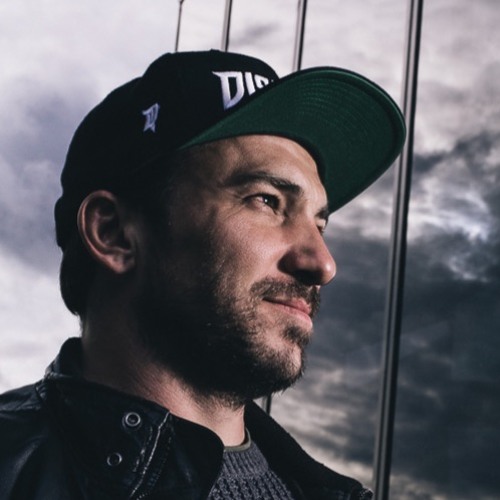
Disaszt
The home base of Switch! is now Flex, according to Pandora. Since 2016, her events have continuously taken place at the Club am Donaukanal. She often books international artists. The headliners play alongside Viennese Switch! residents such as Nc:Matic or Splinta. “We never said we were hosting jump-up events, but noticed that we could fill a gap in Vienna with them. A movement developed out of that,” Pandora says.
She has been hosting regular parties in Vienna with Switch! since 2007. Even though, Pandora promoted some of the partie as “jump-up events” in the past, the promoter and DJ no longer wants to reduce herself to one genre. “Everyone who sends me demos of their banger sets won’t DJ at Switch!” says Dürrer. “I don’t want to be put in that corner anymore, even though I put myself there.”
Pandora says she still hands out flyers because kids are into the analog ’90s thing. She finds that the smoking ban has led to DJs spinning harder tracks. And she believes there are no points of contact between the subgenres. “Nevertheless, people unwittingly support each other in a mutual way, because this versatility enlivens the scene,” Dürrer says. That the Viennese drum & bass scene wouldn’t be where it is without her, she knows, but doesn’t like to admit it. “We’re all replaceable. What sets a few apart is drive — the fond euphemism for ego and the drive for self-expression.”
„Flex is to the Austrian D’n’B scene what Berghain is to the German techno scene.”
In front of the Flex, the Danube flows silently along the canal. A few people lean against the railing and smoke. Inside, an American indie band has just played its encore. While the concert crowd sterams sweatily outside, the fun is just beginning for the others. About 30 young people are waiting in front of the bouncers. Some are freezing in T-shirts. A woman passing around a bottle of vodka has a thong peeking out over her pants. Beat It, one of the city’s most popular drum & bass events, is about to flex across the dance floor.
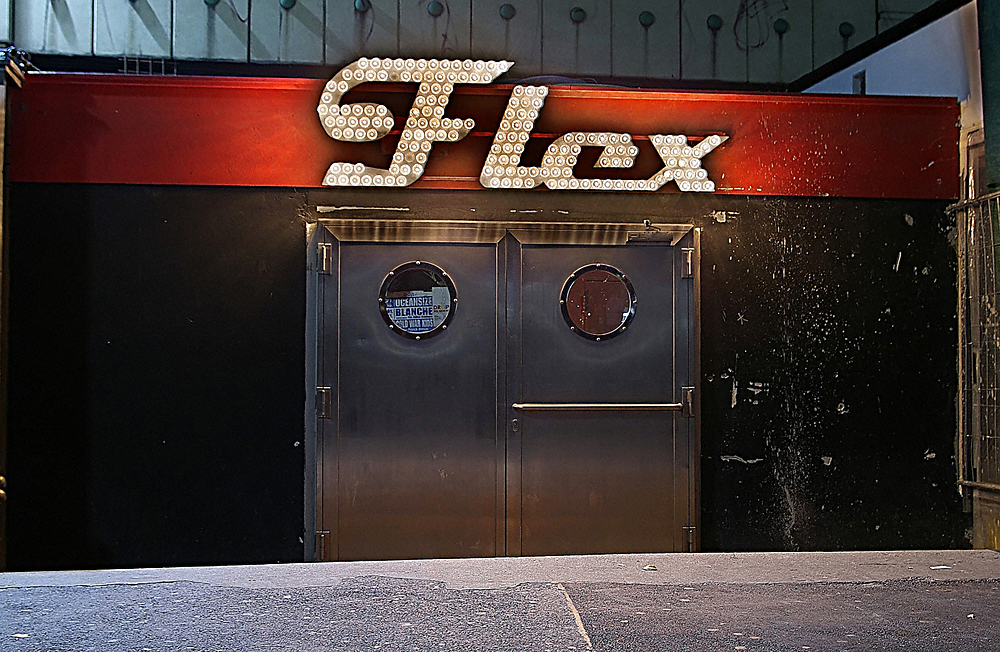
PHOTO: Flex (c) Sven Gross-Selbeck
“Flex is to the Austrian d&b scene what Berghain is to the German techno scene,” says a man in a Metalheadz sweater. “At least it was.” Standing next to him is his girlfriend. Both are in their early 30s and have been going to d&b parties in Vienna “for years“, as they tell me. “Flex brings the most awesome acts, but I can’t handle the atmosphere anymore — the munted kids always drag me down,” the woman says, eyeing a teenager who has a booming Bluetooth box tucked under his right arm. “Plus, you get weird looks if you’re over 25.”
Their destination today is somewhere else, they both point north: three subway stops away, where Vienna’s rubbish incinerator towers into the night sky. Anyone hanging out there at this hour is heading for either the Werk or the Grelle Forelle — two clubs on the Danube Canal known primarily for techno and their sound systems. While a few dealers loiter in the dim light of the street lamp and the four-four kick booms muffled from the Werk, I’m drawn to the Forelle on this January night. With Unglued and Whiney, two British artists are on the line-up of Contrast.
Markus Szabo has been hosting the event exclusively at Greelle Forelle since 2015. “Back then, we were one of the first d&b events in Vienna that was 18+,” he says in a recent interview. It automatically attracted a different audience, he says. Since then, Contrast has stood for a certain quality that is often lacking at other parties. Many people come to his events because of the music, Szabo says. He knows he is taking the real keeper position with such statements. In the announcements for Contrast events, he long wrote the note: “If you’re looking for kiddie music, then look somewhere else.”
Vienna as an incubator of creativity
“Drum & bass has always been an incubator of creativity in Vienna,” says Nico Mpunga. He has been producing as Kimyan Law since the early 2010s, mainly experimental and deep drum’n’bass that has a “fingerprint,” as he says. “The beauty of the genre is that there are so many sound clouds to dive into. That’s what makes the scenes in Vienna,” Mpunga says. However, he notices changes in the music, especially in the more “niche” corners, the Vienna producer said. “It seems like the scene still needs to recover from the Covid consequences.”
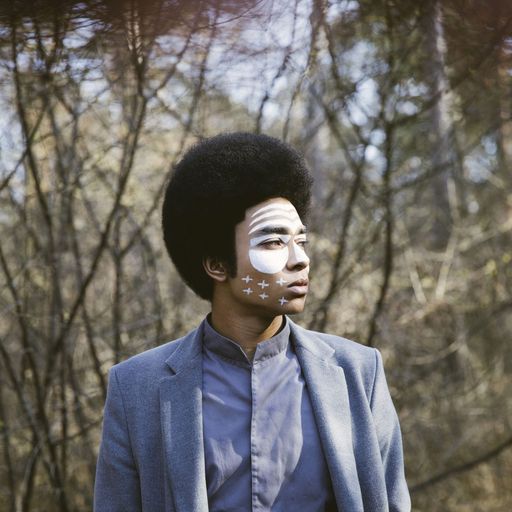
FOTO: Kimyan Law (c) Press
A Viennese all-female crew sees things differently. They are happy about the change because: You can tell that the next generation is moving up, according to Aras, Jalen Mess, Sarah Allen and Sequent. The four women are in their mid-20s to 30s and founded the collective AMI|KAL in 2021. “We stand for more visibility and diversity in the scene,” Anika Wegleitner aka Sequent writes me via email. The quartet has played a few gigs in Vienna over the past two years, hosted floors at events and held their first open air. “We are happy that Womxn are being pushed more and more — but there is still a lot to do on the road to total equality in the scene”, Wegleitner says.
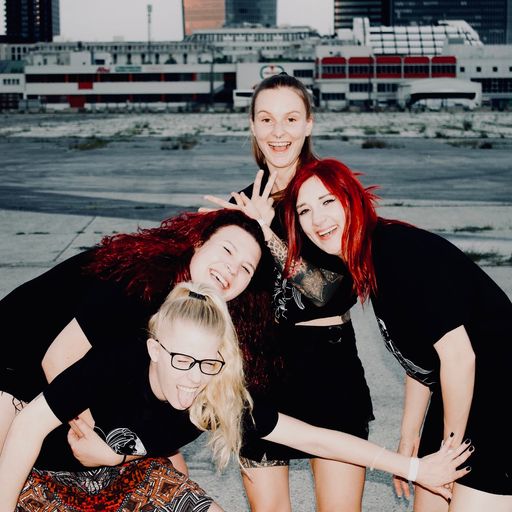
PHOTO: AMI|KAL
János Szabó also notices that the sound remains diverse despite the many parties. He spins records in Vienna under the name 5HA5H. “When the clubs reopened in the spring of 2022, the parties were full of new people.” Before the pandemic, he says, it was different. You noticed how the sound attracted fewer and fewer people. “The hardcore ravers from back then are no longer in the scene, but young ones have followed,” Szabó says. “Of course, this has changed the music, but that’s a good thing. After all, we live in a time when social media is important. People find out about new tracks on TikTok nowadays.“
Szabó came to Vienna in 2011, and the native Hungarian has been DJing since 2015. After all these years, he still describes himself as a “front row soldier” — even if Szabó now stands behind the decks more often than in front of them. Bookings have recently taken him to clubs in his hometown and to Romania. He can therefore easily compare the scene in Vienna, where he often spins at Flex. “Vienna is a city of extremes. Whether you go to the Flex, Fluc or the Grelle Forelle, you can find the right party for every taste, especially if you’re into drum & bass,” Szabó says.
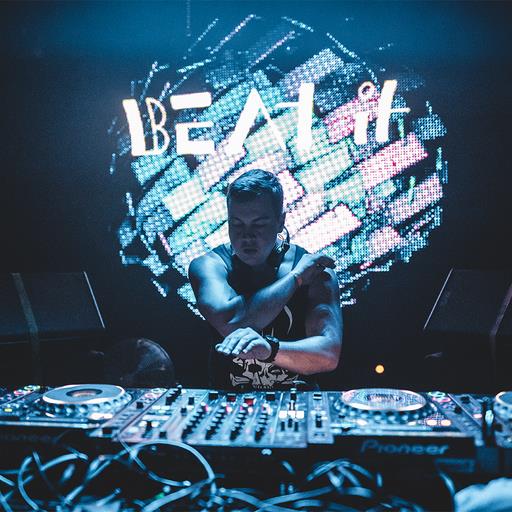
FOTO: 5HA5H (c) Manuell Eggenberger
The Hungarian is not alone in Vienna with this opinion. Almost all my interviewees from the scene confirm that you can party at a drum & bass event just about every day. Of course, international headliners fly into the federal capital more often on Saturdays than on Tuesdays. But if you move away from the scene hotspots at Praterstern and Donaukanal, you could also get happy during the week — for example, along Vienna’s Gürtel. There, many small pubs and clubs are located in the so-called Gürtelbögen. While the sound rigs rumble below, the subway rattles by above. Between kebab and falafel stands, you can stumble across jazz, punk and electronic music every day.
At rhiz, right on the Gürtel and not far from Thaliastraße, the organizers of Upd8e regularly host drum & bass parties. On this night in February, maybe 20 people are dancing in the small location, but the atmosphere is still good because someone is celebrating a birthday. The sound pushes deep and sometimes drifts towards jungle. ‘This is so back to the roots,” says a man in his mid-30s, tearing open the door to the restrooms with pupils the size of dinner plates. “It’s like the sound of London back in the day!“
In this moment, I imagine the worlds between the sold-out Gasometer and the tiny Gürtel venue. They couldn’t be more far away. Yet they exist, because: drum & bass is not limited to one scene in Vienna. There are splinter groups and subcultures that animate each other within the genre even if peers never get to know each other. Thousands of kids can crave the next freak-out drop, a few junglists celebrate their record case, the breakbeat rumbles out of the Bluetooth box — all of this works side by side in Vienna, because despite all egos and differences, people are all in for the same reason: drum & bass.
 FestivalsMusicNew ReleasesArtistsFashion & ClothingVideosPrivacy PolicyTerms And Conditions
FestivalsMusicNew ReleasesArtistsFashion & ClothingVideosPrivacy PolicyTerms And Conditions
